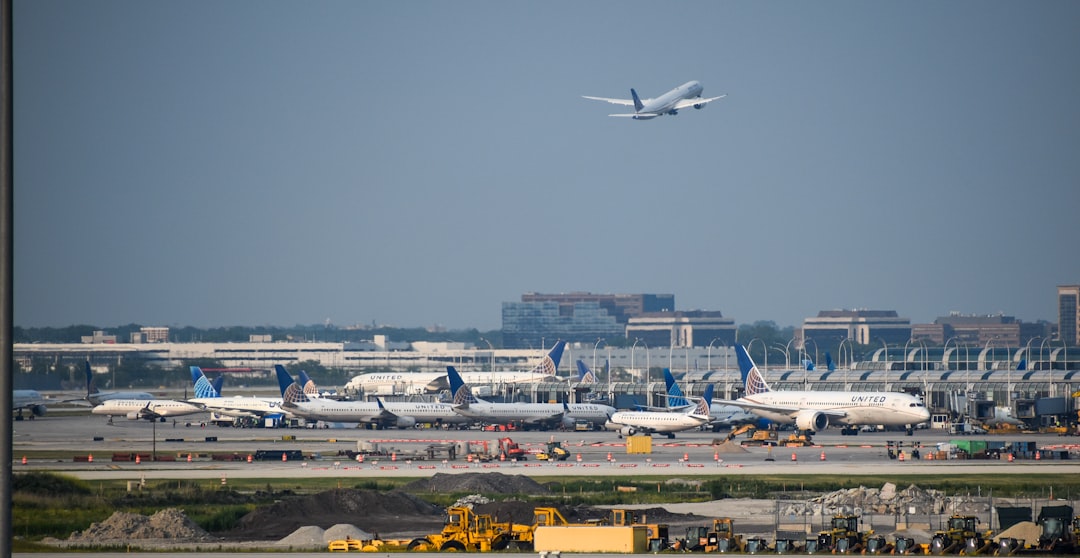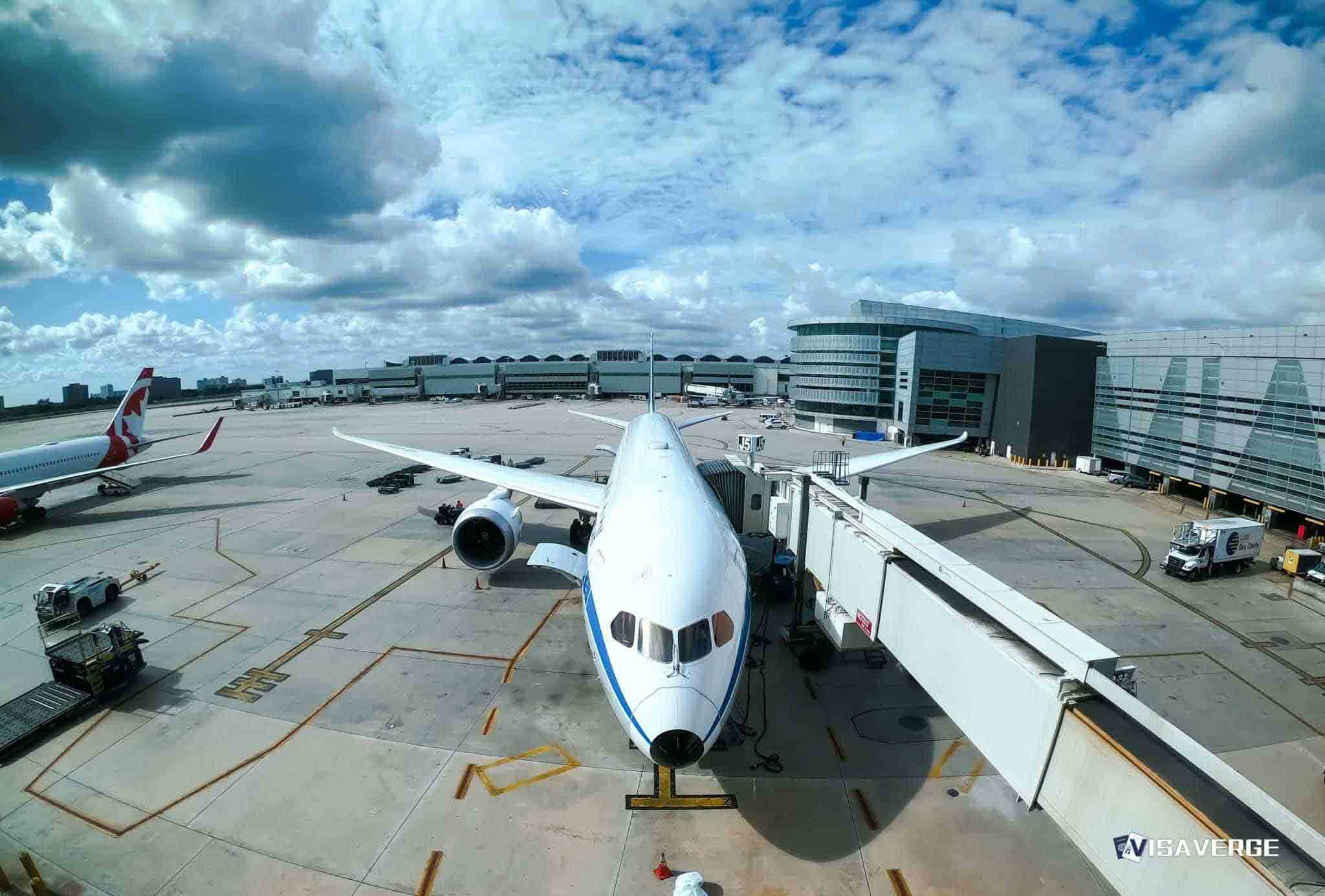Key Takeaways
• Wizz Air resumed Tel Aviv flights on May 15, 2025, less than two weeks after a missile attack near the airport.
• KLM, SAS, and LOT Polish Airlines announced returns to Tel Aviv and Beirut between May and July 2025 after long suspensions.
• Flight resumptions aid immigration, family reunification, business, and education, but many airlines remain cautious due to ongoing safety and regulatory concerns.
Airlines have started to bring back flights to both Beirut and Tel Aviv after a period marked by conflict and high tension in the Middle East. This gradual return is a direct response to improved safety conditions, giving international travelers, families, businesses, and governments new hope. For many, the ability to fly to and from these cities is not just about travel, but about staying connected, keeping economies moving, and supporting people with urgent needs.
Recent months have seen positive changes on the ground. While not all airlines have come back yet, the moves by several major carriers clearly show growing confidence. This article lays out the most recent airline plans to resume flights, explains the historical context behind the suspensions, and looks at what these changes could mean for travelers, businesses, and immigration in the region.

Who Is Flying Where Again?
One of the biggest stories in this new wave of resumed flights is Wizz Air. On May 15, 2025, Wizz Air was among the first to restart service to Tel Aviv from different cities in Europe, just less than two weeks after a missile attack near the airport. This quick return signals that conditions, while not perfect, have calmed enough for airlines to take calculated steps back into this busy market.
Other notable carriers have also made moves to re-establish air links:
– KLM Royal Dutch Airlines will start flying passengers from Amsterdam Schiphol back to Tel Aviv starting May 31, 2025. This ends an 11-month break for KLM in the region.
– SAS Scandinavian Airlines will return to Tel Aviv with flights from Copenhagen Kastrup set to begin on October 26, 2025, marking their first flights there in nine years.
Turning to Beirut, plans are also shaping up:
- Wizz Air Abu Dhabi will bring back direct flights to Abu Dhabi International from June 4, 2025.
- SAS is not just restarting flights to Tel Aviv; it also plans to reconnect Copenhagen to Beirut from June 6, 2025.
- LOT Polish Airlines aims to open its direct route between Warsaw Chopin and Beirut on July 1, 2025.
It’s clear the region’s two historic cities, both known for their lively cultures and deep histories, are slowly reopening their doors to the world.
Step by Step: How and Why Airlines Are Coming Back
The fresh round of resumed flights did not happen overnight. It follows a pattern seen in early 2025, after a ceasefire was reached between Israel and Hamas. This fragile peace set the stage for airlines to start returning, although with careful planning and lots of caution.
The Lufthansa Group made headlines by being one of the first big players to re-enter the market, especially for flights to Tel Aviv. On February 1, 2025, Lufthansa, SWISS, Austrian Airlines, Brussels Airlines, Eurowings, and ITA Airways all brought back their operations.
From the United States, United Airlines took an early lead, restarting service to Tel Aviv from New York/Newark on March 15, 2025, and adding a second daily flight two weeks later on March 29. Delta Airlines pushed forward with its own return, starting flights again on April 1, 2025.
This mix of European and American airlines returning shows that when security improves, there is strong demand for both personal and business travel into the region.
The Story Behind the Suspensions and Cautious Returns
The slow and careful approach from airlines is rooted in real risk—and hard lessons from recent history. On October 7, 2023, attacks by Hamas in Israel led to about 1,200 deaths. This tragic day forced almost all airlines to immediately suspend flights not only to Tel Aviv, but also to Beirut and other cities across the Middle East.
For months after, the situation stayed dangerous. In mid-2024, things got worse when Israeli-Iranian tensions grew much sharper. The assassination of Hamas leader Ismail Haniyeh in Tehran and Hezbollah’s military leader Fuad Shukr in Beirut only deepened the crisis. Conflicts like this make airlines very careful, because the risk to aircraft and passengers becomes much higher than during peaceful times.
A brief window of hope came with a ceasefire between Israel and Lebanon in November 2023. After that, some airlines such as AZAL Azerbaijan Airlines, TAROM, Hainan Airlines, and Etihad Airways tentatively resumed flights to Tel Aviv. But even then, it was clear that peace could be fragile, and schedules often changed at short notice.
Ongoing Challenges: Why Some Airlines Are Still Staying Away
Not all airlines feel ready to come back. Even as some big names prepare to restart routes, others want more time to see if peace will last. For example, Air Canada had planned to return to Tel Aviv on June 8, 2025, but has now delayed its move until September.
United Airlines, which was quick to restart some flights, still has a full suspension in place through at least mid-June 2025 for other services. This mix of routes restarting and others staying paused shows that airlines are watching every update and making decisions week by week.
There are also practical matters. A group of 20 foreign airlines has directly asked Israel’s Ministry of Transportation to change current rules about compensation for canceled flights. They have said they want these regulations relaxed before bringing services back, since the high risk of possible new interruptions means more money spent paying passengers for changes outside the airlines’ control.
This tug of war between government rules, safety, and stable business planning adds another layer of complexity for airlines looking to operate in this region.
Why These Flight Resumptions Matter for Immigration and Travel
The gradual return of flights to Beirut and Tel Aviv has big effects, not just for tourists, but also for people with families separated by war, people working in the region, and students attending universities.
For immigrants and people visiting family, an open flight schedule means shorter waits and less worry about being stranded. Many families in Beirut and Tel Aviv have relatives living abroad—Europe, United States, Gulf countries, and beyond—who depend on regular flights to keep bonds strong.
For workers with international jobs, especially those in finance, aid, construction, and trade, flights are the only way to keep business moving. Closed airports slow down investments, disrupt supply chains, and create uncertainty for managers and employees waiting to travel.
Universities and schools in both cities also rely on a steady flow of students and professors. When flights are cut, students miss semesters or face months-long delays. Research exchanges and joint programs pause, causing setbacks in education and science.
VisaVerge.com’s investigation reveals that airlines returning may also help reduce the backlog of immigration cases. Embassy and consulate appointments, interviews, and visa stamping often depend on available flights. If airplanes do not fly, most immigration work comes to a stop.
Different Viewpoints: The Debate Over Safety and Timing
Not everyone agrees on how quick the return should be. Some say airlines are coming back too fast, risking passenger safety and staff well-being while conditions remain unstable. They point to the many times uneasy peace has broken down in the Middle East.
Others argue that not opening flights blocks people from seeing family, running businesses, or seeking safety outside the region. With proper security steps, they believe airlines’ return is an important sign of hope.
The ongoing talks between airlines and government ministries over compensation rules add fuel to this debate. Some industry voices say that strict rules on canceled flights protect passengers, making airlines act responsibly. Others feel that if rules are too harsh, airlines might hold back longer or raise prices to make up for the extra risk.
Both sides have strong points, and the final decision often comes down to weighing risks against the chances for normal life to return.
Looking Closer at Immigration: Options Still Changing
Travelers seeking to enter Lebanon or Israel still face some uncertainty. While some routes are returning, flight schedules remain fragile.
- People applying for work or student visas may find more open slots for interviews or document processing as flights return.
- Refugees and asylum seekers may find it easier to move to another safe country or reunite with family now that more travel options are opening.
- International businesses may start to bring in key staff again if they see that flights are regular and safety is improving.
However, many embassies in Beirut and Tel Aviv may still operate with reduced staff or limited services. On top of that, sudden changes could return if tensions rise again.
For travelers and immigrants who want the most up-to-date details, checking with official sources like the U.S. Department of State’s travel information is always the best step. These pages offer warnings, guidance, and practical updates on travel risks.
A Closer Look at Wizz Air and Direct Links
Among all the airlines coming back, Wizz Air stands out for its speed. Their quick resumption of Tel Aviv flights from several European destinations, plus their plan to start Beirut-Abu Dhabi flights through Wizz Air Abu Dhabi, gives them a bigger stake in regional recovery. Their decisions may pressure other low-cost carriers to follow suit.
Passengers who want cheaper travel options between Europe and the Middle East now have more choices thanks to Wizz Air’s aggressive timetable. This can help people who need to travel for emergencies, business, or family reunification, especially if bigger, more expensive carriers are not yet back.
What Comes Next? Possible Impacts
As events unfold, the resumed flights will have ripple effects:
- Immigration cases may move faster, as embassy staff and travelers are more mobile.
- Students and workers with visas can make timely plans, less likely to be caught by last-minute cancellations.
- Tourism may recover, though slowly, helping local economies rebuild.
- Families with roots in multiple countries will get relief from long periods of separation.
- Airlines may win back traveler trust, but only if security remains stable.
Yet, everyone involved must accept that the situation can change quickly. Airlines, governments, and travelers will need to stay alert and flexible for months ahead.
Final Thoughts
Resumed flights to Beirut and Tel Aviv do not mean that everything is back to normal, but they are real proof that pressures are easing for now. For people who depend on cross-border travel—migrants, workers, students, business leaders—this is a big step toward rebuilding routines disrupted by war and fear.
Air travel always reflects the wider situation. When planes fly, it shows a degree of hope and faith in stability. As more airlines like Wizz Air, KLM, SAS, and LOT reopen routes, the world watches to see if this hope is well placed.
For the latest details on flight schedules, visa appointments, and entry rules, keep a close watch on official sites and trusted platforms like VisaVerge.com. Changes will keep coming, but for now, millions can plan their journeys with a little more confidence.
Learn Today
Ceasefire → A temporary suspension of fighting, often agreed upon by conflicting parties, paving the way for safer travel conditions.
Visa Stamping → A required process at consulates or embassies, marking an individual’s travel document as authorized for entry into another country.
Compensation Rules → Regulations dictating airlines’ obligations to reimburse or assist passengers when flights are canceled or disrupted unexpectedly.
Backlog → An accumulation of delayed cases or applications, such as visa processing, often caused by travel or operational interruptions.
Fragile Peace → A state of temporary calm that can easily be disrupted, causing uncertainty for travel, immigration, and business activities.
This Article in a Nutshell
After months of turmoil, international airlines are cautiously resuming flights to Beirut and Tel Aviv. Wizz Air reignited the trend, quickly reconnecting Europe with Tel Aviv in May 2025. These routes restore critical connections for families, business, and immigration, though safety concerns and regulations continue to require vigilance across the region.
— By VisaVerge.com
Read more:
• Wizz Air receives second Airbus A321neo from Aviation Capital Group
• Wizz Air aborted take-off at London Luton Airport; all safe
• American Airlines Flight AA333 from Athens diverted to London Heathrow
• Avianca adds Braille row markers to Airbus A320 planes for accessibility
• Qantas cuts Airbus A380 flights between Sydney and Johannesburg













